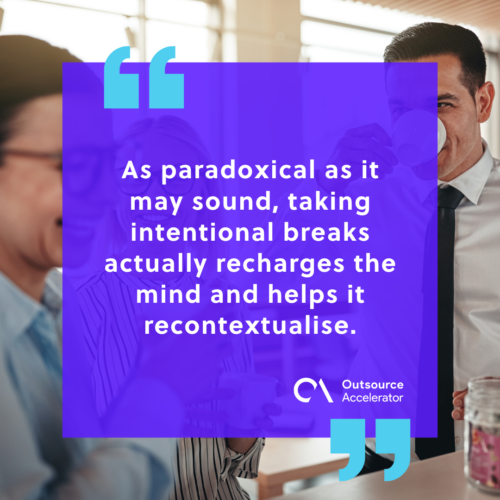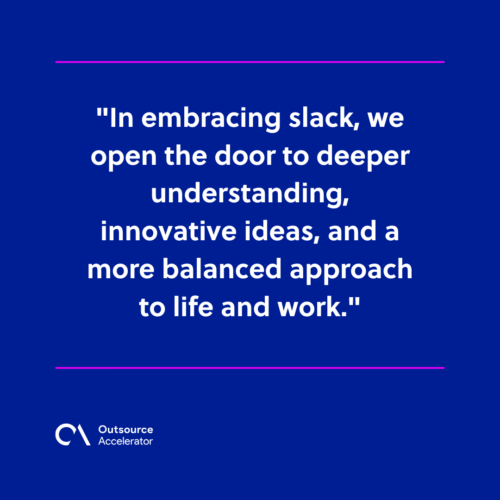Embracing the art of slowing down
We’re all moving too fast. It’s time to slow down.
Business is generally seen as a high-speed environment, where the hustle and the grind will result in you being a ‘top G’, or whatever the TikTok kids are calling it these days.
However, there’s an emerging trend of taking things slower. Slacking off has long been seen as a negative activity, promoting laziness.
But it shouldn’t be.
The myth of constant productivity
Here’s some quick math for you;
Non-stop hustle + long hours = burnout.
Nobody can be firing on all cylinders 24/7. Mental fatigue sets in, and the creative part of the brain begins to atrophy.
As paradoxical as it may sound, taking intentional breaks actually recharges the mind and helps it recontextualise.

This is in principle the same as the running adage “run slow to run fast”; it’s about pacing to build up endurance and speed in the long run.
The end result?
Innovative thoughts, fresh eyes, and new approaches to problem-solving.
Changing world order
The world has evolved from a workforce of physical labor, to one of skill and intellectual contribution. Previously, when work consisted of piecemeal production lines facilitating mindless processes, speed paid. Thinking about the process was unnecessary, and even discouraged.
That was for someone else.
However, in today’s world, people are increasingly knowledge workers, individual contributors or system designers in some context. Jobs are increasingly subjective and ethereal, where output is based on outcomes, rather than brute production.
In the new world, people need space and stillness to think, design, create and consider.
Slow reading
Much has been made of AI’s ability to analyze PDFs at a stroke.
Seems efficient, right?
But you don’t seek out the cliff notes for something like Marcus Aurelius’s “Meditations”; that would defeat the purpose. Instead, you read each entry and reflect on it. Spending time to take in the message, rather than speed reading through the book just to tick it off.
Think of Bill Gates and his renowned ‘Think Week‘, where he spends seven days reading, pondering, and coming up with new ideas.
The importance of slack
This is where slack really comes into its own.
It’s not just a break from work; it’s an integral part of the creative and reflective process.
How often have you had the Next Great Idea™ whilst out on a walk or in the shower? Very rarely does the breakthrough come from staring at the 100th email of the day.
In embracing slack, we open the door to deeper understanding, innovative ideas, and a more balanced approach to life and work.
Creating mental space, allowing ideas to germinate and connections to be made.

The question for your business
How can you get more out of doing less?

 Independent
Independent





















